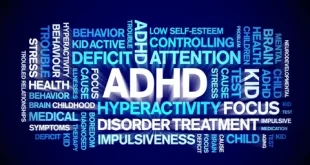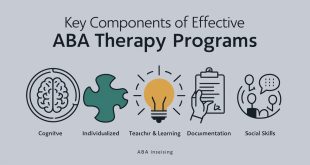The neurodevelopmental disorder known as Attention Deficit Hyperactivity Disorder (ADHD) is typified by impulsivity, hyperactivity, and inattention. While medication is a standard treatment for ADHD symptoms, non-medication alternatives have become more popular due to their comprehensive and frequently longer-lasting effects. The focus of this article is on behavioral therapy and other supplemental tactics as they relate to different non-medication therapies for ADHD.
Recognizing ADHD and Its Difficulties
ADHD presents distinct issues that might disrupt social connections, occupational productivity, and academic success in both children and adults. Many people have found success with conventional pharmaceutical therapies, such as stimulants like Adderall and Ritalin. These drugs might not be appropriate for everyone and may have negative consequences. As a result, there is rising interest in non-pharmacological ADHD treatments that can provide relief without the negative side effects of drugs.
Behavioral Therapy: The Fundamental Non-Medical Method
Therapy based on cognitive behavior (CBT)
The method of treating ADHD symptoms that is most commonly known is called cognitive behavioral therapy, or CBT. The goal of CBT is to recognize and alter harmful thinking patterns and behavior patterns. CBT can help people with ADHD become more organized, manage their time better, and control their emotions. Patients who engage with a therapist have the ability to create realistic goals, divide difficult activities into smaller ones, and use coping mechanisms to deal with stress and frustration.
PCIT, or parent-child interaction therapy
Parent-Child Interaction Therapy (PCIT) is especially beneficial for younger ADHD children. Direct coaching of parents during their interactions with their children is a component of PCIT. The goals of this therapy are to strengthen discipline strategies and the parent-child bond. Parents acquire the skills necessary to establish clear expectations, reward good behavior, and apply consistent punishment for bad behavior. This methodical technique aids in the understanding of boundaries and the improvement of self-control in children with ADHD.
Interventions in Education
School-based individualized education programs, or IEPs, are essential for managing symptoms of ADHD. Plans called Individualized Education Programs (IEPs) are specially created to address the particular requirements of students with ADHD. IEPs offer allowances including extra time for exams, changed assignments, and first choice seating. Students with ADHD can better control their symptoms and achieve academic success with these modifications.
504 Schemes
Under the Rehabilitation Act of 1973, 504 Plans provide adjustments for students with ADHD, much like IEPs do. Despite not requiring as much paperwork as IEPs, 504 Plans are nevertheless vital in ensuring that students with ADHD have equitable access to education. Typical accommodations consist of giving tasks more time, giving note-takers, and using technology to help with learning.
Adjustments to Lifestyle and Environment
Nutrition and Diet
Recent studies indicate that nutrition and food may have an impact on ADHD symptoms. According to some research, sugar and specific dietary additives may make hyperactivity worse in kids who are already at risk. An energy-stabilizing and concentration-enhancing diet full of fruits, vegetables, healthy grains, and lean proteins may be possible with a balanced diet. Furthermore, it has been shown that omega-3 fatty acids, which are present in flaxseed and fish, enhance behavior and cognitive function in ADHD patients.
Exercise
Frequent exercise is another powerful non-pharmaceutical treatment for ADHD. Exercise has been demonstrated to boost mood, lessen hyperactivity, and improve executive function. Swimming, martial arts, and team sports are a few examples of structured activities that help adults and children with ADHD build social skills, self-control, and teamwork. Regular exercise also helps to improve sleep patterns, which are essential for controlling the symptoms of ADHD.
Meditation and Mindfulness
The use of mindfulness and meditation techniques as adjunctive therapies for ADHD has grown in popularity. Focusing on and accepting the current moment without passing judgment is a key component of mindfulness. People with ADHD who meditate can improve their ability to focus, control their impulsivity, and handle stress. To improve general well-being, routines can include practices like progressive muscle relaxation, guided imagery, and deep breathing.
Digital Tools and Technological Assistance
Neurofeedback
One kind of biofeedback called neurofeedback tracks brainwave activity and gives instantaneous feedback to assist people control their brain activity. For those with ADHD, this non-invasive treatment has demonstrated potential in enhancing focus and lowering impulsivity. In a neurofeedback session, patients watch a movie or play a computer game that reacts to their brain activity to help them stay focused and relaxed.
Tools and Applications for Organizations
A variety of technological aids are available to help people with ADHD manage their everyday responsibilities. People can stay organized by using tools like task managers and calendars, which assist in managing appointments, due dates, and to-do lists. These technological tools lessen the chaos that people with ADHD frequently encounter by providing visual assistance and reminders that assist time management and planning.
Social Skills Education
People with ADHD frequently have difficulty interacting with others. Programs for social skills training are intended to assist individuals in acquiring effective communication, empathy, and conflict resolution abilities. People with ADHD can learn to manage social circumstances more skillfully through peer interactions, role-playing, and group therapy. This will help them forge deeper relationships and live better overall.
The Function of Support Systems
Family Assistance
Support from the family is essential for managing ADHD. Fostering a supportive home environment can be achieved by educating family members about ADHD and including them in treatment. In family therapy sessions, dynamics that can aggravate symptoms of ADHD can be addressed, and plans for improved cooperation and communication can be developed.
Support Groups: Support groups give people with ADHD and their families a forum to discuss difficulties, coping mechanisms, and shared experiences. These support groups make members feel less alone and more understood by providing them with practical guidance and emotional support. Access to tools and knowledge about the most recent interventions and treatments for ADHD can also be obtained by joining a support group.
In summary
Non-drug ADHD treatments provide beneficial alternatives that target the problem from numerous sides, even if medication is still a frequent treatment for ADHD. A comprehensive strategy to managing ADHD includes behavioral treatment, educational interventions, lifestyle modifications, technology assistance, social skills training, and strong support systems. People with ADHD and their families can enhance their overall quality of life and effectively manage the difficulties of this complicated condition by investigating and incorporating these many solutions.







